Bible Class 05
Al Krummenacher

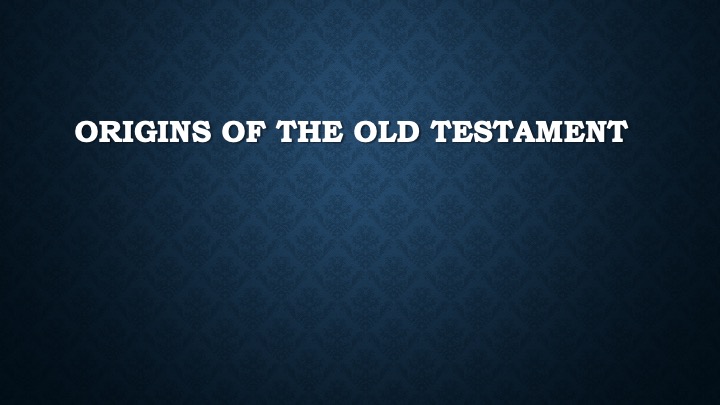
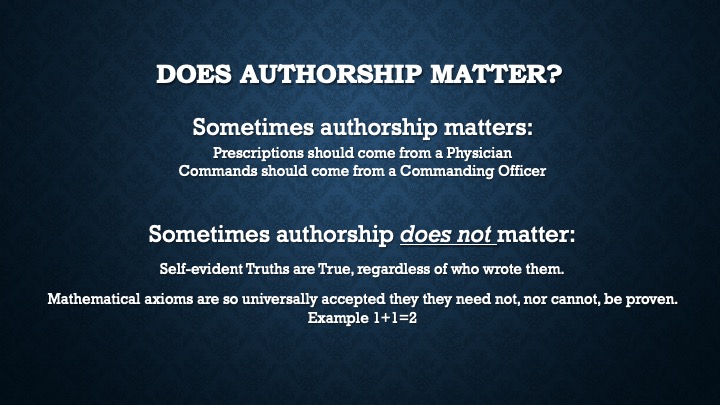
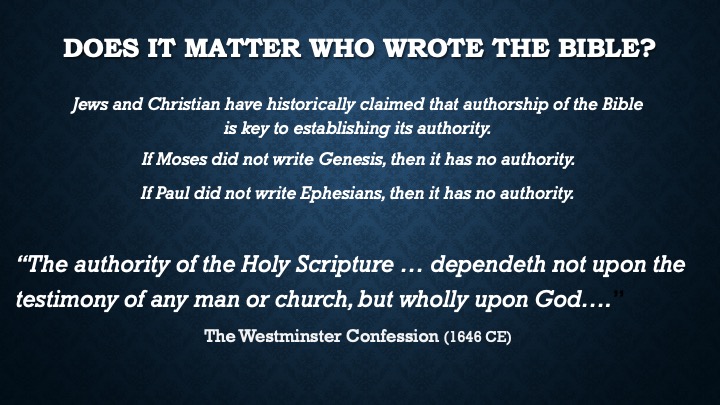
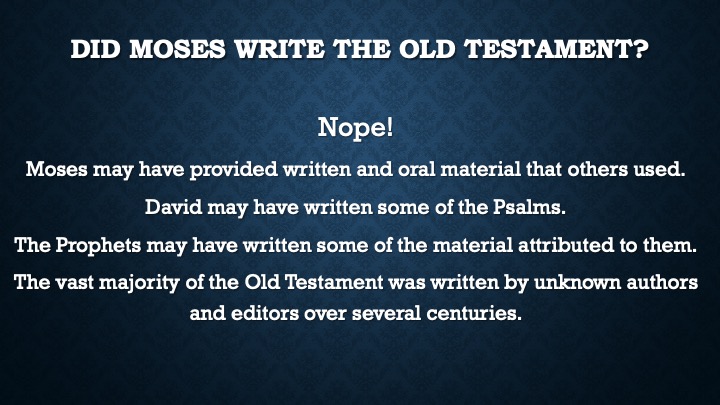
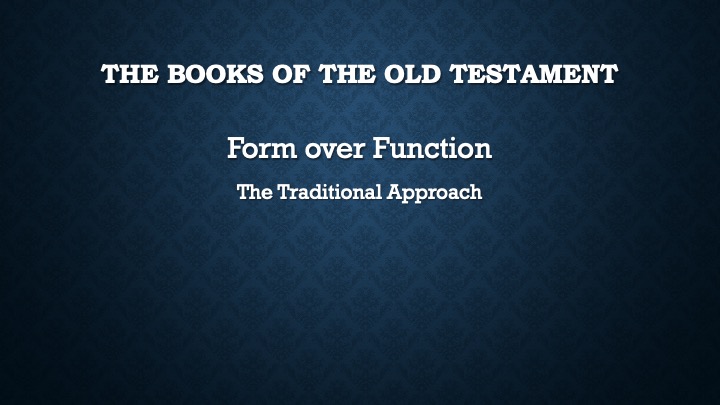
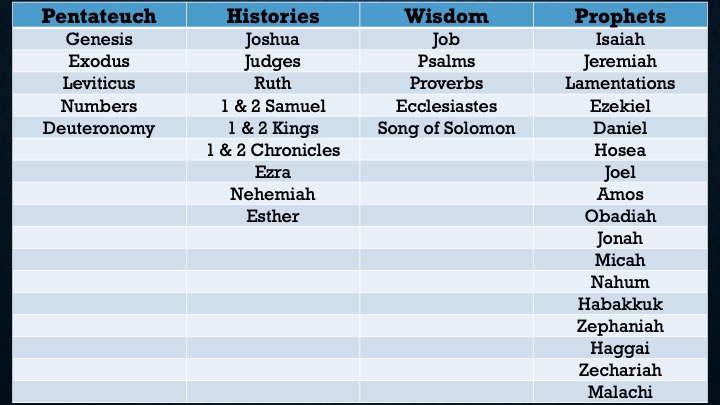
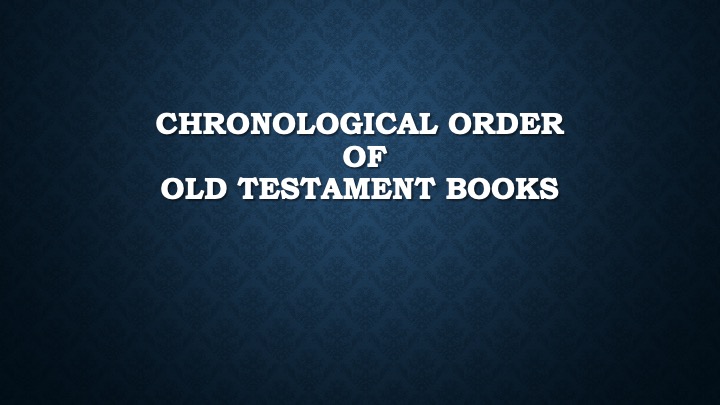
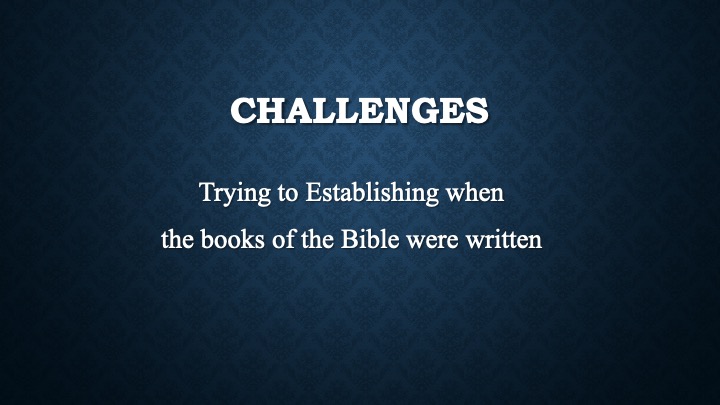
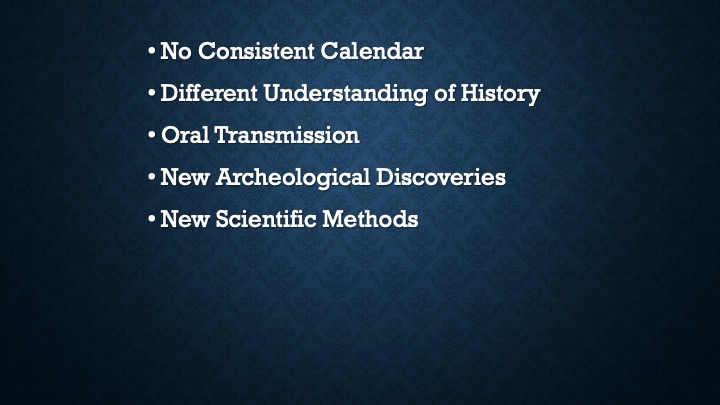

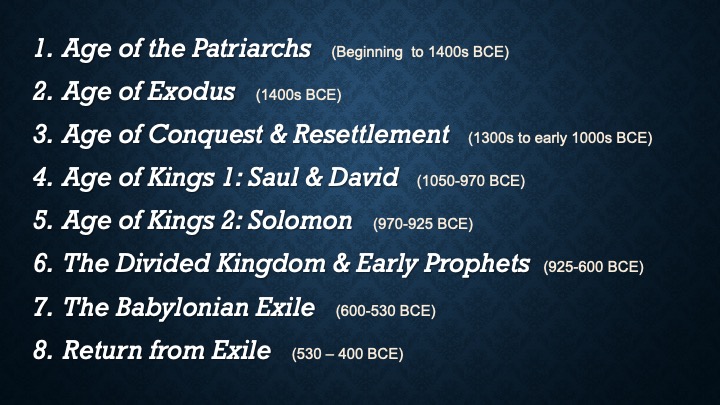
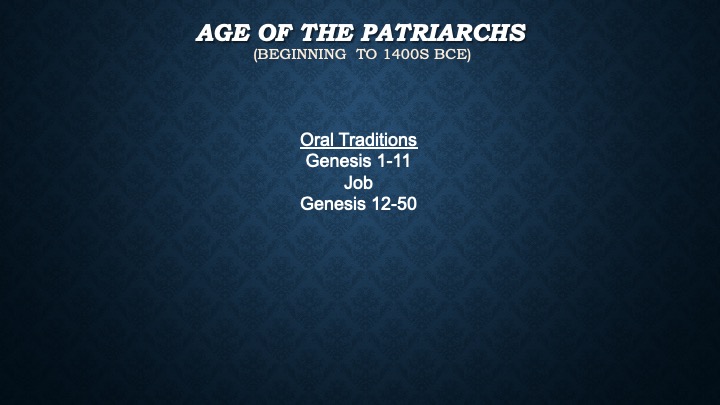
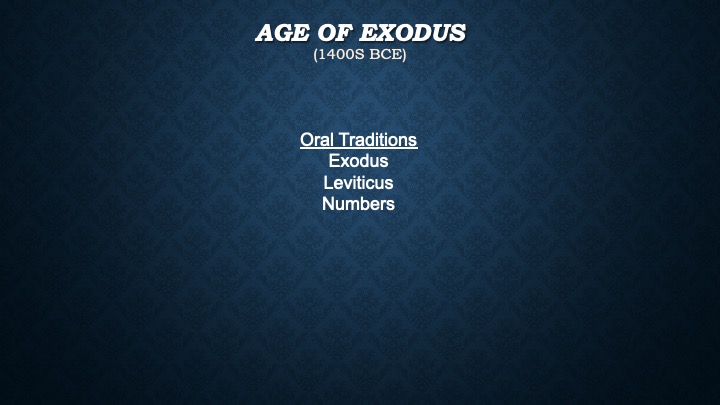
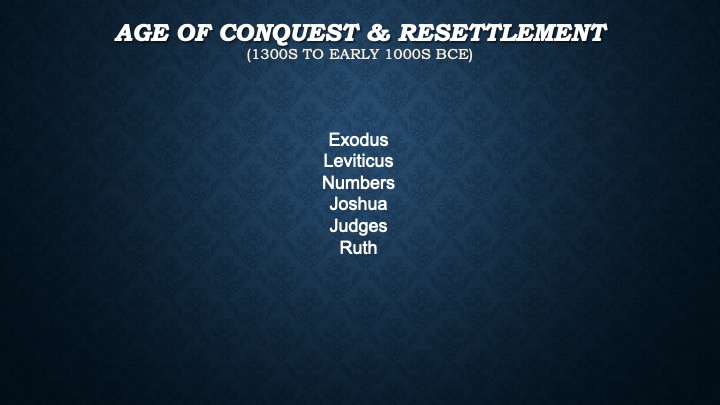
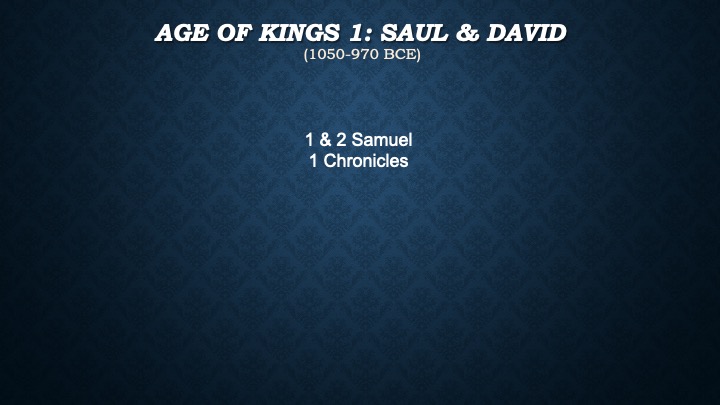
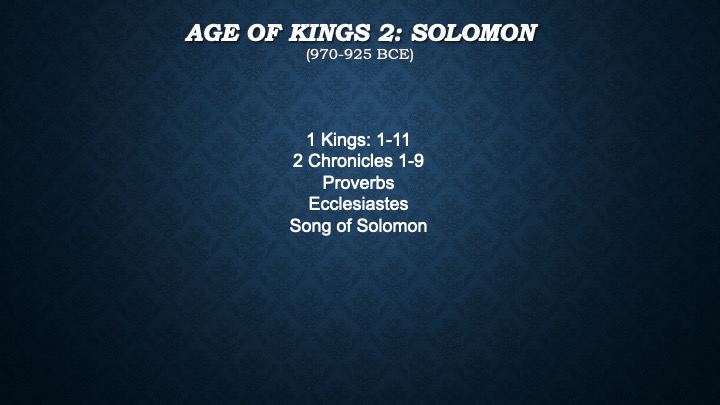
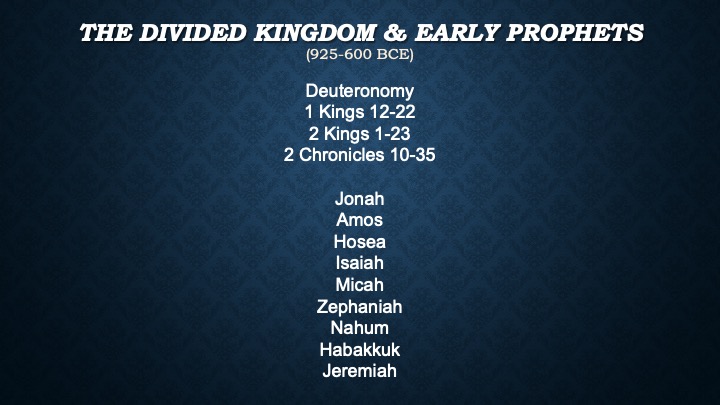
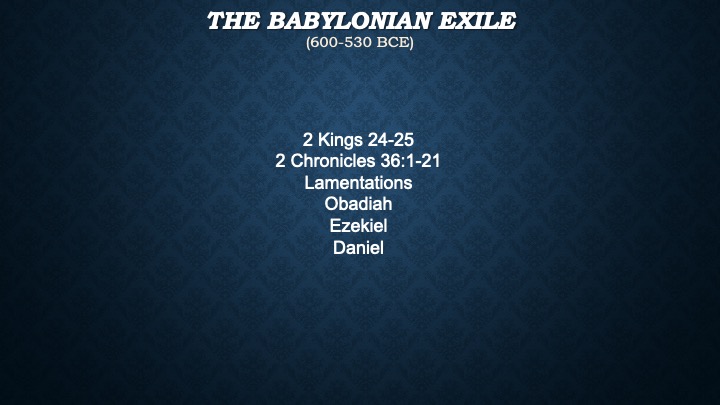
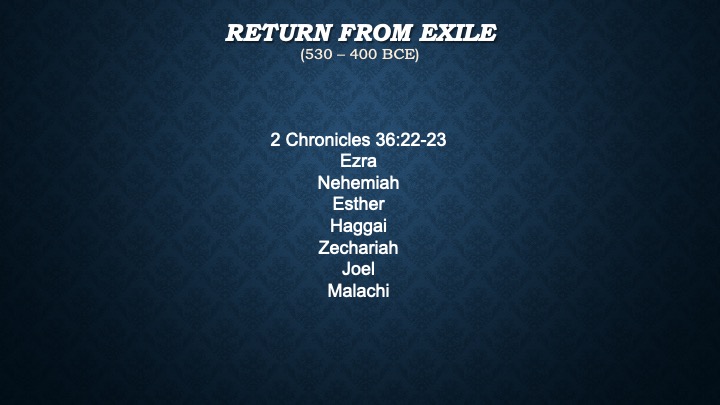
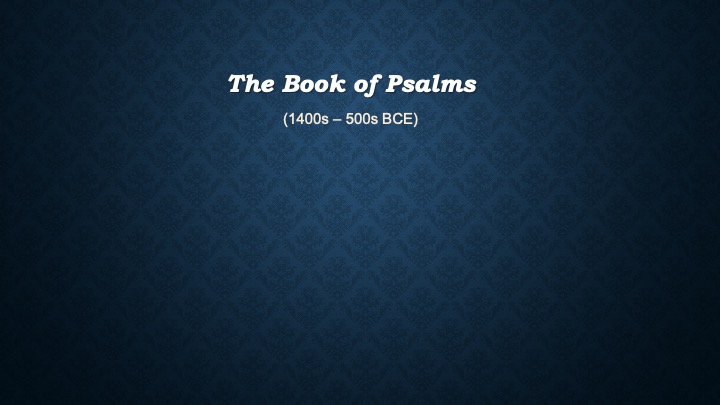
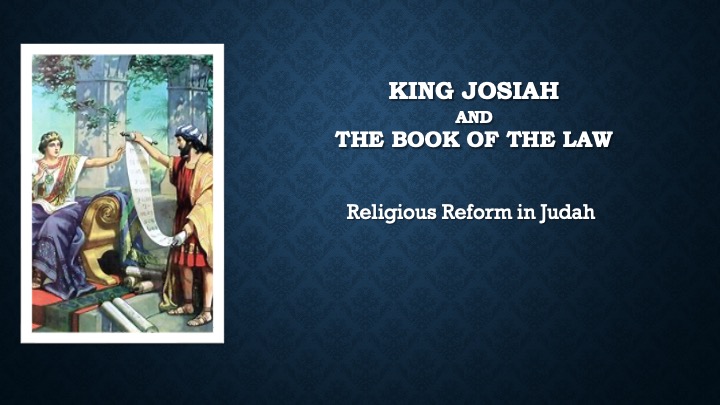
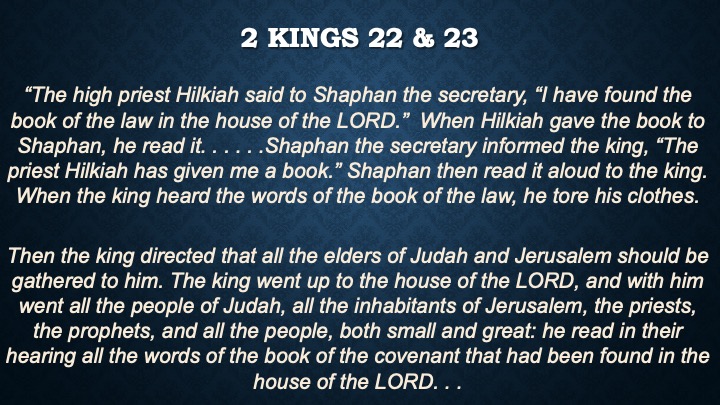
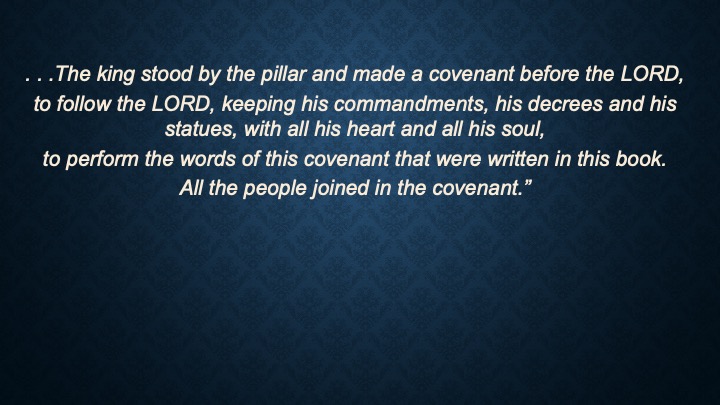
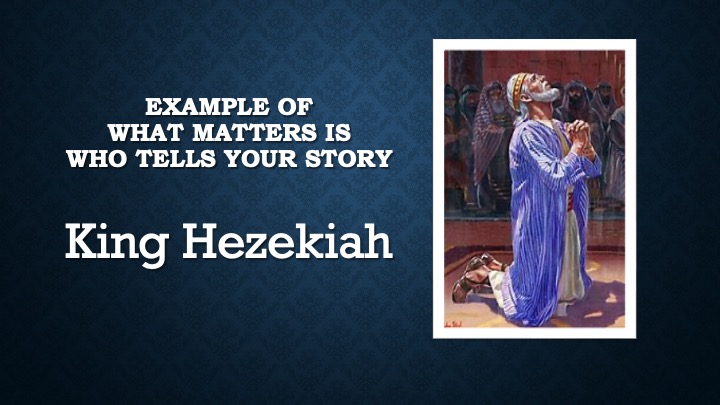
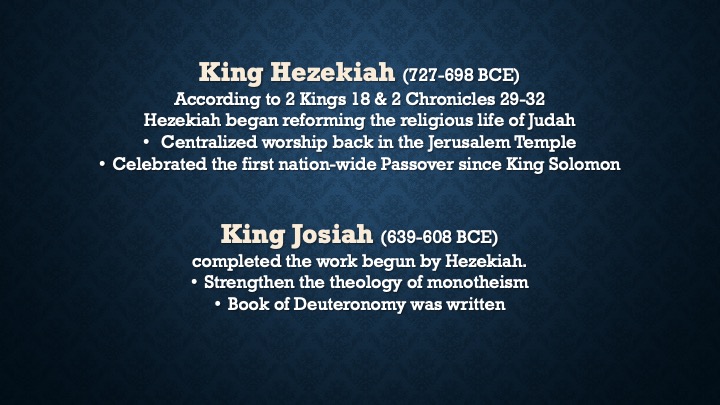
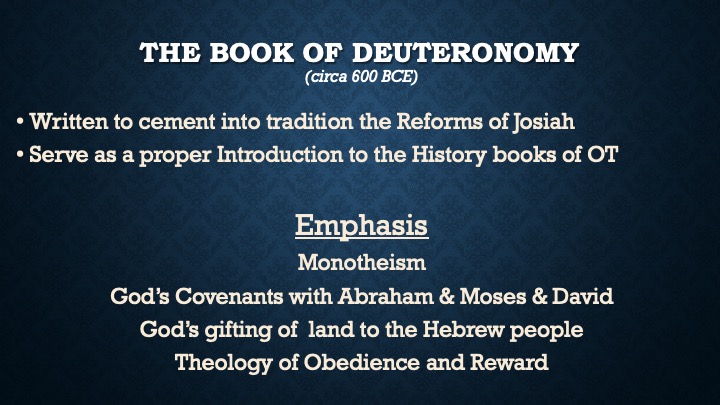
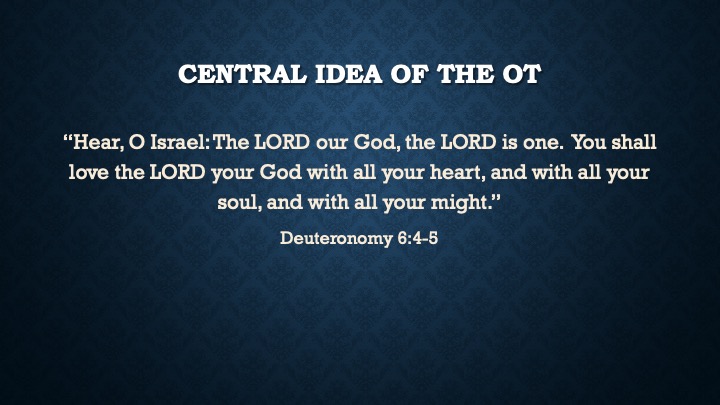
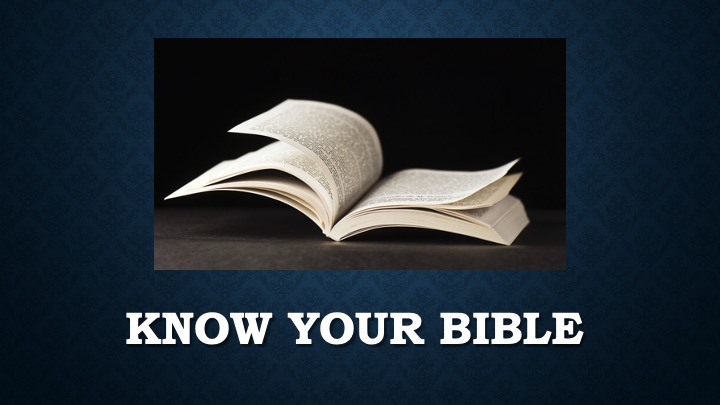

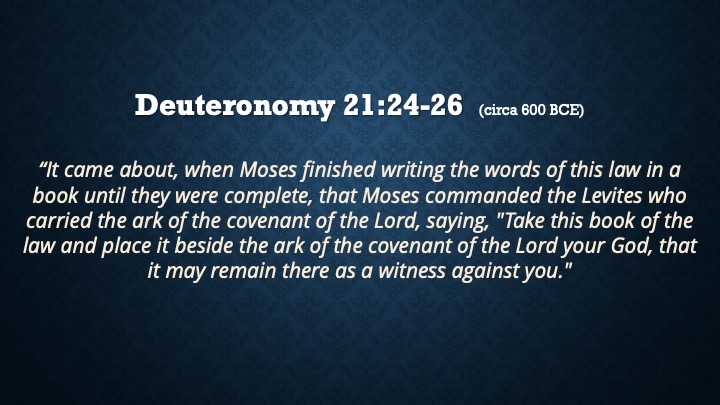
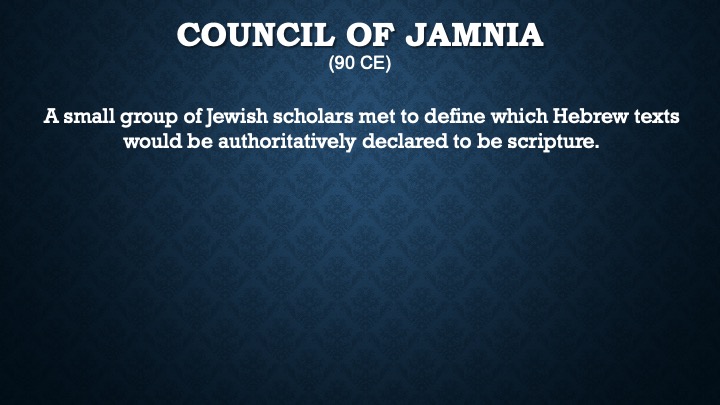
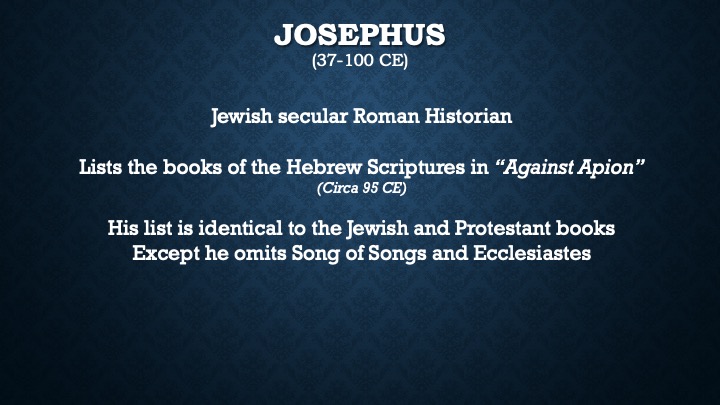
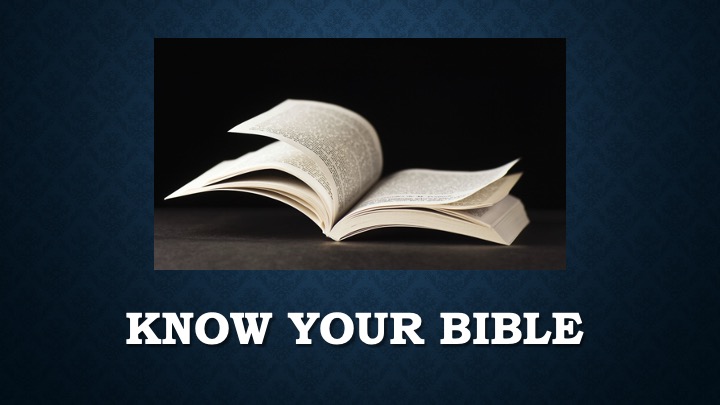
Know Your Bible Class 05
Links
< Home Page > < Top of Page >
Know Your Bible Text
Know Your Bible 05 Text
Know Your Bible
Week Five
Origins of the Old Testament
Does Authorship Matter?
Sometimes authorship matters:
Prescriptions should come from a Physician
Commands should come from a Commanding Officer
Sometimes authorship does not matter:
Self-evident Truths are True, regardless of who wrote them.
Mathematical axioms are so universally accepted they they need not, nor cannot, be proven.
Example 1+1=2
Does It Matter Who Wrote the Bible?
Jews and Christian have historically claimed that authorship of the Bible
is key to establishing its authority.
If Moses did not write Genesis, then it has no authority.
If Paul did not write Ephesians, then it has no authority.
“The authority of the Holy Scripture … dependeth not upon the testimony of any man or church, but wholly upon God….”
The Westminster Confession (1646 CE)
Did Moses Write the Old Testament?
Nope!
Moses may have provided written and oral material that others used.
David may have written some of the Psalms.
The Prophets may have written some of the material attributed to them.
The vast majority of the Old Testament was written by unknown authors and editors over several centuries.
The books of the Old Testament
Form over Function
The Traditional Approach
Pentateuch
Genesis Exodus Leviticus Numbers Deuteronomy
Histories
Joshua Judges Ruth 1 & 2 Samuel 1 & 2 Kings 1 & 2 Chronicles Ezra Nehemiah Esther
Wisdom
Job Psalms Proverbs Ecclesiastes Song of Solomon
Prophets
Isaiah Jeremiah Lamentations Ezekiel Daniel Hosea Joel Amos Obadiah Jonah Micah Nahum Habakkuk Zephaniah Haggai Zechariah Malachi
Chronological Order of Old Testament Books
Challenges - Trying to Establishing when the books of the Bible were written
• No Consistent Calendar
• Different Understanding of History
• Oral Transmission
• New Archeological Discoveries
• New Scientific Methods
The Books of the Old Testament Chronologically
The Eras Tour
- Age of the Patriarchs (Beginning to 1400s BCE)
- Age of Exodus (1400s BCE)
- Age of Conquest & Resettlement (1300s to early 1000s BCE)
- Age of Kings 1: Saul & David (1050-970 BCE)
- Age of Kings 2: Solomon (970-925 BCE)
- The Divided Kingdom & Early Prophets (925-600 BCE)
- The Babylonian Exile (600-530 BCE)
- Return from Exile (530 – 400 BCE)
Age of the Patriarchs
(Beginning to 1400s BCE)
Oral Traditions. Genesis 1-11 Job Genesis 12-50
Age of Exodus
(1400s BCE)
Oral Traditions - Exodus Leviticus Numbers
Age of Conquest & Resettlement
(1300s to early 1000s BCE)
Exodus Leviticus Numbers Joshua Judges Ruth
Age of Kings 1: Saul & David
(1050-970 BCE)
1 & 2 Samuel 1 Chronicles
Age of Kings 2: Solomon
(970-925 BCE)
1 Kings: 1-11. 2 Chronicles 1-9 Proverbs Ecclesiastes. Song of Solomon
The Divided Kingdom & Early Prophets
(925-600 BCE)
Deuteronomy 1 Kings 12-22 2 Kings 1-23 2 Chronicles 10-35. Jonah
Amos. Hosea. Isaiah. Micah Zephaniah Nahum Habakkuk. Jeremiah
The Babylonian Exile
(600-530 BCE)
2 Kings 24-25 2 Chronicles 36:1-21 Lamentations Obadiah Ezekiel Daniel
Return from Exile
(530 – 400 BCE)
2 Chronicles 36:22-23 Ezra Nehemiah Esther Haggai Zechariah Joel Malachi
The Book of Psalms (1400s – 500s BCE)
King Josiah and the Book of the Law
Religious Reform in Judah
2“The high priest Hilkiah said to Shaphan the secretary, “I have found the book of the law in the house of the LORD.” When Hilkiah gave the book to Shaphan, he read it. . . . . .Shaphan the secretary informed the king, “The priest Hilkiah has given me a book.” Shaphan then read it aloud to the king. When the king heard the words of the book of the law, he tore his clothes.
Kings 22 & 23
Then the king directed that all the elders of Judah and Jerusalem should be gathered to him. The king went up to the house of the LORD, and with him went all the people of Judah, all the inhabitants of Jerusalem, the priests, the prophets, and all the people, both small and great: he read in their hearing all the words of the book of the covenant that had been found in the house of the LORD. . .
. . .The king stood by the pillar and made a covenant before the LORD,
to follow the LORD, keeping his commandments, his decrees and his statues, with all his heart and all his soul, to perform the words of this covenant that were written in this book. All the people joined in the covenant.”
Example of What matters is who tells your story
King Hezekiah
King Hezekiah (727-698 BCE)
According to 2 Kings 18 & 2 Chronicles 29-32
Hezekiah began reforming the religious life of Judah
• Centralized worship back in the Jerusalem Temple
• Celebrated the first nation-wide Passover since King Solomon
King Josiah (639-608 BCE)
completed the work begun by Hezekiah.
• Strengthen the theology of monotheism
• Book of Deuteronomy was written
The Book of Deuteronomy
(circa 600 BCE)
• Written to cement into tradition the Reforms of Josiah
• Serve as a proper Introduction to the History books of OT
Emphasis
Monotheism
God’s Covenants with Abraham & Moses & David
God’s gifting of land to the Hebrew people
Theology of Obedience and Reward
Central Idea of the OT
“Hear, O Israel: The LORD our God, the LORD is one. You shall love the LORD your God with all your heart, and with all your soul, and with all your might.”
Deuteronomy 6:4-5
Know Your Bible
Deuteronomy 21:24-26 (circa 600 BCE)
“It came about, when Moses finished writing the words of this law in a book until they were complete, that Moses commanded the Levites who carried the ark of the covenant of the Lord, saying, "Take this book of the law and place it beside the ark of the covenant of the Lord your God, that it may remain there as a witness against you."
Council of Jamnia
(90 CE)
A small group of Jewish scholars met to define which Hebrew texts would be authoritatively declared to be scripture.
Josephus
(37-100 CE)
Jewish secular Roman Historian
Lists the books of the Hebrew Scriptures in “Against Apion”
(Circa 95 CE)
His list is identical to the Jewish and Protestant books
Except he omits Song of Songs and Ecclesiastes
Know Your Bible